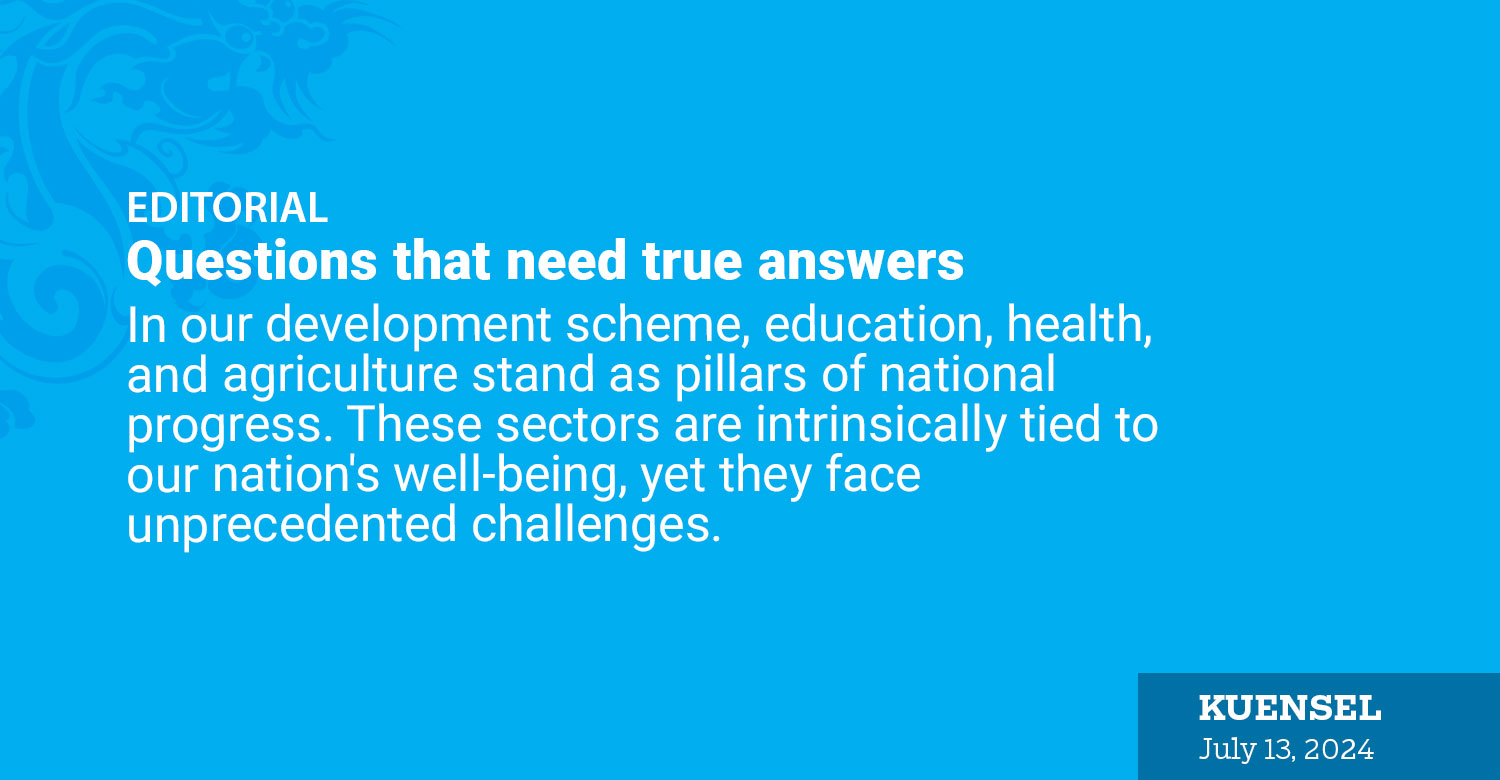In our development scheme, education, health, and agriculture stand as pillars of national progress. These sectors are intrinsically tied to our nation’s well-being, yet they face unprecedented challenges.
The current trend of relying on foreign doctors and witnessing our own experts seeking opportunities abroad raises pressing questions about the sustainability of our healthcare system.
Similarly, the migration of educators to more comfortable positions in other countries signifies a profound intellectual loss that hampers our educational infrastructure.
The migration of medical and educational professionals to other nations is a clear indicator of a troubling brain drain. Why is this happening?
This phenomenon not only undermines our healthcare and educational systems, but also signifies a deeper issue: the failure to retain and nurture talent within our borders.
When we call for foreign doctors, it reflects a gap in our ability to provide adequate incentives and conditions for our own experts. This dependency on external assistance is a temporary solution that does not address the root causes of the problem. Instead, it highlights the need for comprehensive reforms to make these sectors more attractive and sustainable for our professionals.
The departure of our educators is equally alarming. These individuals carry with them invaluable knowledge and experience that could have significantly contributed to the development of our education system. Their absence creates a void that is difficult to fill, leading to a decline in the quality of education. The loss is not just in numbers, but also in the potential innovations and improvements that these educators could have brought to our classrooms.
Agricultural development, once a shining example of hope for Bhutan, now seems like a lost dream. The percentage of arable land is decreasing as our hills become increasingly populated. This urbanisation trend is transforming our once fertile fields into concrete jungles. The sight of Thimphu, with its expanding urban sprawl, shows the need for a balanced approach to development.
While the rush for urbanisation is driven by the desire for modernisation and economic growth, it comes at the cost of our agricultural heritage and natural beauty.
The transformation of our fields into urban landscapes reflects a broader issue: the prioritisation of short-term gains over long-term sustainability. We had the potential to be a model of sustainable development, demonstrating how a nation can balance modernisation with the preservation of its agricultural and natural resources. Instead, we are witnessing the erosion of our agricultural potential, which could have been a cornerstone of our economy and food security.
In the pursuit of development, we must ask ourselves what kind of nation we want to become. Are we giving sufficient importance to the sectors that can secure our future and preserve our unique identity? Education, health, and agriculture are not just sectors; they are the foundation of our nation’s wellbeing. Neglecting them in favor of rapid urbanisation and short-term economic gains is a perilous path.


